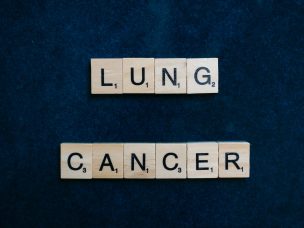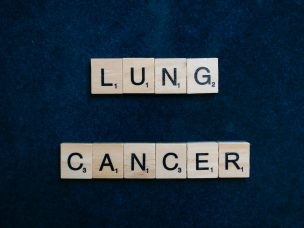Lung Cancer
Experts Widen Criteria for Those Who Should Get Lung Cancer Screening
Key Takeaways More smokers and former smokers will be eligible for lung cancer screening under new guidelines The American Cancer Society now recommends screening start at age 50 and continue until age 80, and those who have smoked at least 20 cigarettes a day for 20 years or more should be screened Meanwhile, all former...
Dr. Isaretta Riley: Health Disparities in the Pulmonary Arena
Transcript: Hi, everyone. I’m Isaretta Riley. I am an assistant professor in the division of pulmonary allergy and critical care at Duke University School of Medicine. I am the Vice Chief of diversity, equity and inclusion. And I’m also the co director for the community engagement and dissemination Corps, which is part of our Health...
Lung Cancer Disparities in the United States
A recent literature review shows significant racial disparities, indicating that Black individuals are less likely to be screened despite having a higher lung cancer risk. The study also shows disparities in treatment and palliative care. Lung cancer is the second most common cancer and the leading cause of cancer deaths in the United States, accounting...
Addressing Disparities in Immunotherapy Access for Advanced Lung Cancer Patients
Immunotherapy is one of the newer treatment options for improving survivability in patients diagnosed with lung cancer. However, a recent study reports that lower-income and less educated people are less likely to receive these novel drugs, contributing to cancer treatment disparities. Lung cancer is among the leading causes of death in U.S. men and women....
Intensity-Modulated Radiation Therapy Best for Locally Advanced NSCLC
Intensity-modulated radiation therapy spares more normal tissue than 3D-conformal radiotherapy Intensity-modulated radiation therapy (IMRT) shows benefits over 3D-conformal (3D-CRT) radiotherapy for patients with locally advanced non-small cell lung cancer (NSCLC), according to a study presented at the International Association for the Study of Lung Cancer 2023 World Conference on Lung Cancer, held from Sept. 9...
Complexities of Lung Cancer: Case Study of Liquefied Lung Malignancy
Medically reviewed by Dr. Samuel Sarmiento, M.D., MPH on Oct. 4, 2023 A recent case report describes an atypical presentation of liquified lung cancer in a 71-year-old female. In this article, we examine a case study published in the journal Frontiers in Oncology of a 71-year-old female with a history of lung cancer. This case highlights the...
Unique Metastasis Patterns in Poorly Differentiated Lung Squamous Cell Carcinoma
Medically reviewed by Dr. Samuel Sarmiento, M.D., MPH on Oct. 4, 2023 A recent case report examined a unique presentation of a 38-year-old female with poorly differentiated lung SCC that had metastasized to uncommon sites. Cancer remains a significant global health concern, with nonmelanoma skin cancer and lung cancer being among the most prevalent and commonly diagnosed...
Fewer Black Veterans Complete Referrals for Lung Cancer Screening
Black veterans had 34 percent lower odds of screening completion versus White veterans Black veterans have significantly lower odds of completing lung cancer screening (LCS) than White veterans even after adjusting for demographic and socioeconomic risk factors, according to a study published online June 16 in JAMA Network Open. Neelima Navuluri, M.D., from the Duke University...
Sex and Age Disparities in Adherence to Treatment Guidelines for Lung Cancer
This study examines age- and sex-related disparities in adherence to treatment guidelines for patients with non-small cell lung cancer. Adherence to treatment guidelines for non-small cell lung cancer (NSCLCL) decreases with increasing patient age. However, gender disparities are also present, and have not been studied in as much detail. Women with NSCLC tend to have...
More Medical News














